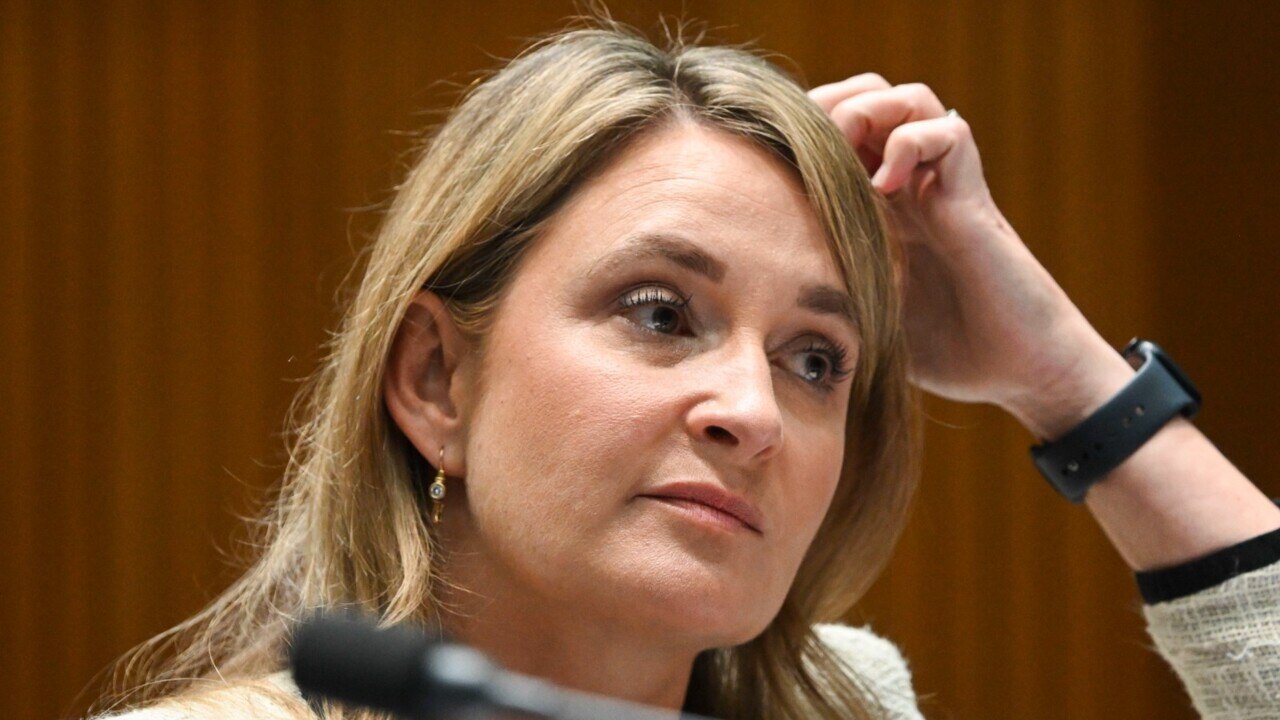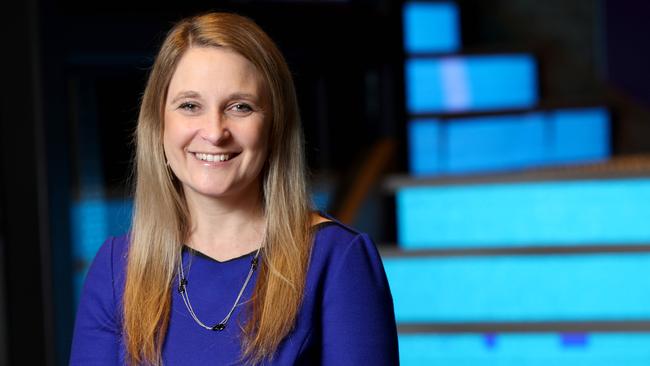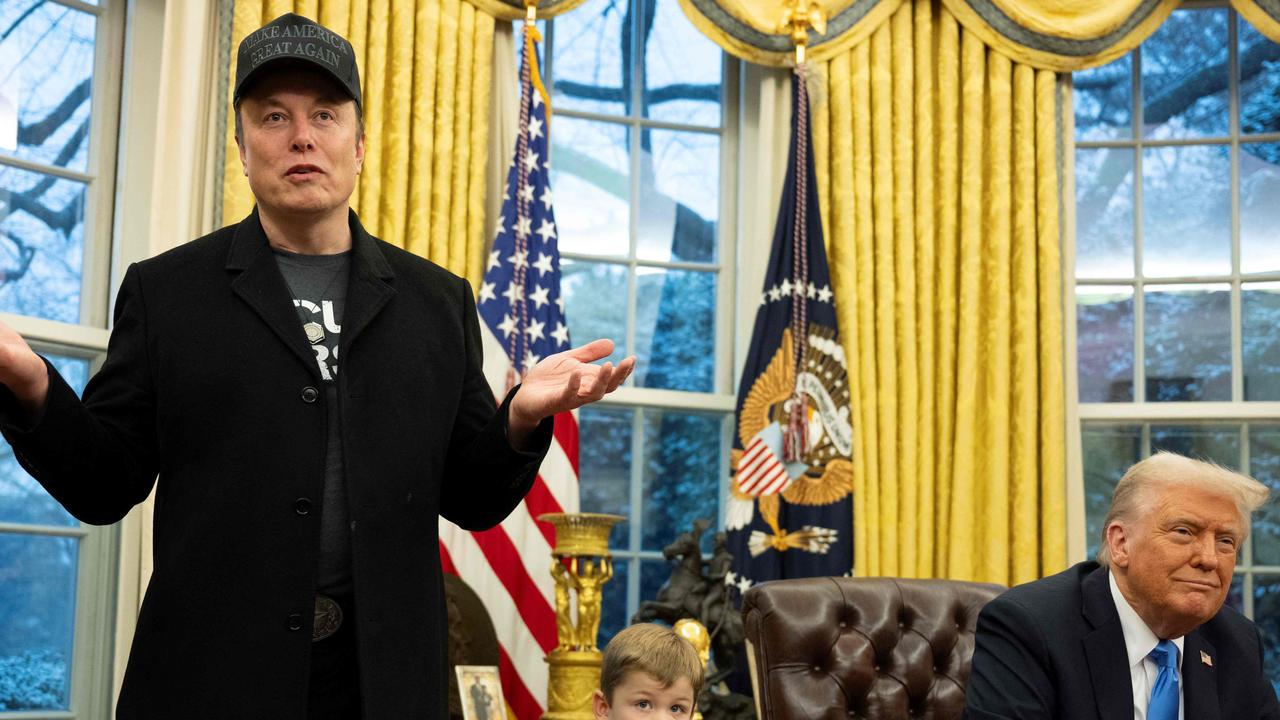CEO Kelly Bayer Rosmarin’s departure ‘will help Optus move forward’
Telecommunications experts say Optus boss Kelly Bayer Rosmarin’s exit was a necessary and positive step in helping the company rebuild its reputation.

Telecommunications experts say the departure of Optus chief executive Kelly Bayer Rosmarin is a positive step for the company, the first in a long line of reputational fixes from the Singaporean-owned company.
Ms Bayer Rosmarin’s exit is understood to have come as a shock to most at Optus on Monday, just days after she dodged questions about resignation during a Senate inquiry.
In a letter to employees, seen by The Australian, the outgoing Optus boss reflected on what she described “as a great place to work” staffed by “an incredible team to work with”. “I know, despite the setbacks, our customers can sense that,” the letter read.
Ms Bayer Rosmarin acknowledged the resilience of staff while working through a cyber breach and a major outage, each affecting more than 10 million customers.
“I have led Optus through some key challenges – the Covid pandemic, the malicious cyber-attack, the network outage, and several natural disasters impacting communities like bushfires and floods,” the letter read.
“I want to acknowledge the incredible resilience and dedication you have shown in these times, and the genuine care for our customers and each other. It has been truly inspiring.
“You are our greatest asset – the stars in our universe – and I know you will continue to collaborate with purpose and prioritise our customers’ needs in the weeks and months to come.”
Ms Bayer Rosmarin’s departure provided an opportunity for reset and would help the struggling telco regain confidence, telecommunications expert Mark Gregory said.
“As we know, there’s been contradictory messages coming out of the parent company Singtel and really to have this conflict of discussion going on between the parent and Optus is disconcerting for everyone, because we don’t really know what’s going on,” Associate Professor Gregory, an RMIT academic specialising in network engineering, told The Australian.

Singtel’s statements about the outage had also informed the nation of the nature of the relationship between Singtel and Optus, Professor Gregory said.
“I believe there’s so many questions that need to be answered about that relationship and exactly who is managing what within the Optus network,” he said.
“There’s a need for the government to put regulations in place to ensure that there’s distance between Optus and Singtel. We don’t need Australian telecommunications companies being run and operated overseas by foreign entities.”
Oliver Freedman, the managing director of RepTrak, a firm which measures corporate reputation, said chief executives typically needed to deliver in three areas to be successful: financial stability, capability and character.
“When leaders lose two or three of those to some degree of perception, it’s very difficult for them to maintain (trust),” he said.
“I think the events of the last week made it very challenging for the CEO of Optus. I think we saw the challenge around the capability component. Was the outage planned for? If not, why not? And what happened in the morning to fix it? And then the challenges around character were around the comment about the hairdresser or the sense by some of not taking full responsibility.”
On the day of the outage, Mr Freedman said Optus had only a few hours to maintain its reputation, but things became “progressively worse” throughout the day.
Opposition communications spokesman David Coleman said he wasn’t surprised by Ms Bayer Rosmarin’s decision.
Gabby Fredkin of IT advisory firm ADAPT said the Optus outage showed the need to invest in incident response plans.
“While managing the enormous complexity involved with keeping a company the size of Optus secure and resilient isn’t the job of a single person, or even a team of people, it’s clear that when crisis strikes, the buck ultimately stops with the CEO,” he said.
“Given brand damage is a top driver of cybersecurity and resilience initiatives, businesses are now well-aware that when trust goes, their customers go with it.
“While a new CEO won’t be able to change anything overnight, Optus’ next pick will be vital steering the ship back in the right direction. Given the relationship between the ‘digital savviness’ of a company’s C-suite and Board and its ability to perform in the technology arena1, they need to appoint someone willing to take a more hands-on approach to managing the technology inside the business alongside the company’s IT leaders.”








To join the conversation, please log in. Don't have an account? Register
Join the conversation, you are commenting as Logout